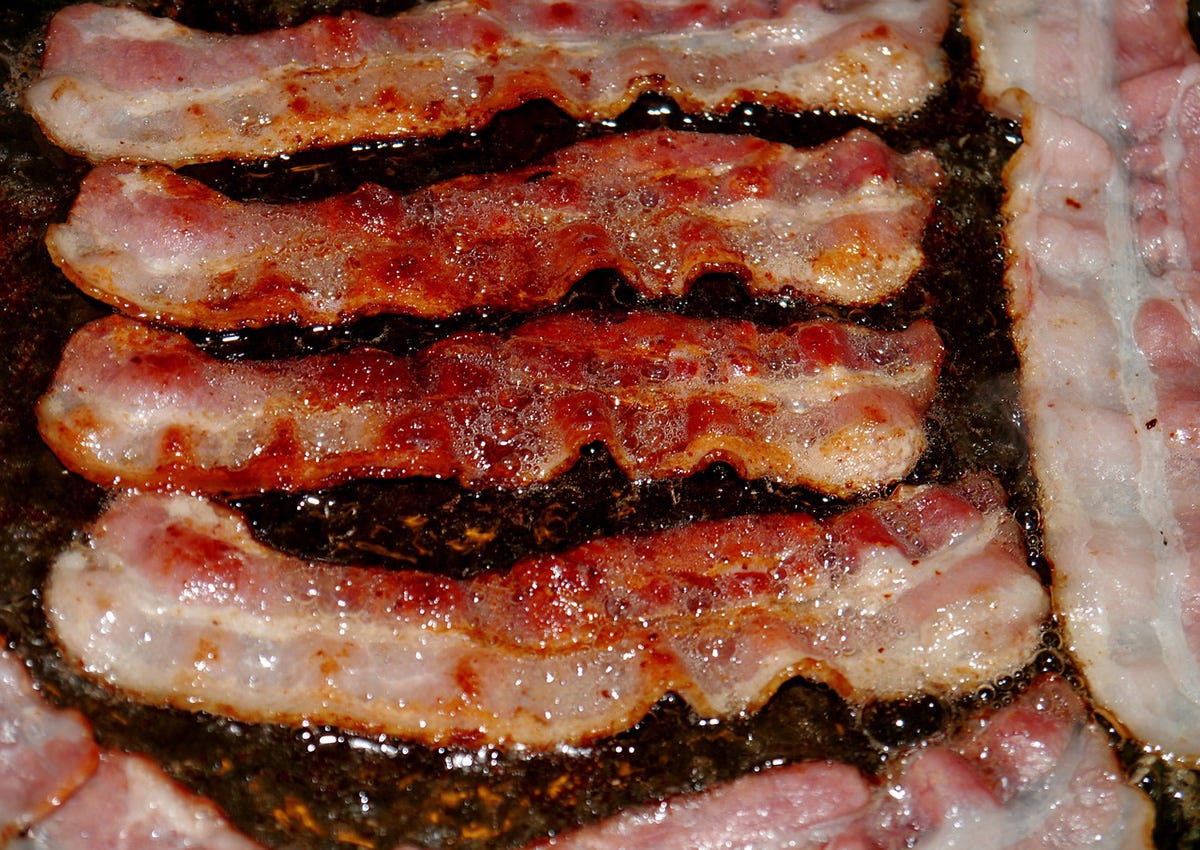More Bacon, More Problems
By Lucas Cohen

In response to the recent accumulation of evidence that the consumption of red and processed meats increases the risk of cancer — particularly colorectal cancer — a team of 22 scientists convened at the International Agency for Research on Cancer (IARC) to formally evaluate these claims. The team examined over 800 epidemiological studies, ultimately confirming the link.
WHO classifies red meat as all mammalian muscle meat, and processed meat as any meat product that has undergone extensive preservation or flavor-enhancement procedures like fermentation or smoking. This includes everything from lamb and veal to jerky and, you guessed it: bacon.
Though these conclusions might be worrying for some, it’s worth noting that the carcinogenicity of these meat products does not equal that of, say, smoking tobacco. WHO classifies carcinogenic substances within groups according to the certainty of their connection to cancer — that is, according to the strength of the scientific evidence. Red meats are classified within Group 2A, labeled as “probably carcinogenic to humans.” This means that there is limited evidence drawing a direction connection between read meats and colorectal cancer, but the evidence presented is compelling enough to warrant classification.
Processed meats, however, are found in Group 1, labeled as “carcinogenic to humans” — the same general category as tobacco smoking and asbestos. This means that there is certainly enough evidence to suggest a positive association between processed meats and the development of cancer. For example, the IARC team concluded that N-nitroso-compounds (NOC) produced from red meat consumption causes many DNA adducts, RNA-carcinogen complexes, to form. In a few words, processed meats likely cause cancer.
The original team that evaluated the evidence linking these products to cancer said little about the mechanism by which consumption leads to cancer, noting only that the evidence available primarily implicates processes occurring in the digestive tract. However, they also stated that high-heat cooking methods may also play a major role in determining the meat’s carcinogenicity. Methods like pan-frying or grilling produce carcinogens like heterocyclic aromatic amines (HAA), and other chemicals whose carcinogenicity is either known or at least suspected.
However, WHO says this shouldn’t be cause for widespread panic. They emphasize that although Group 1 carcinogenic substances are potentially quite dangerous, they are not equally so. WHO encourages consumers to limit their consumption of red and processed meats, but concedes that meat consumption also has important health benefits.